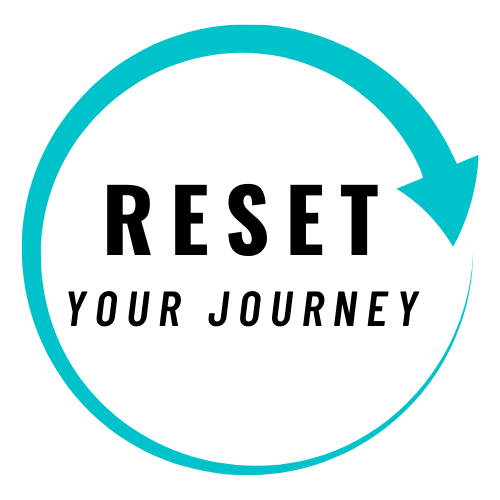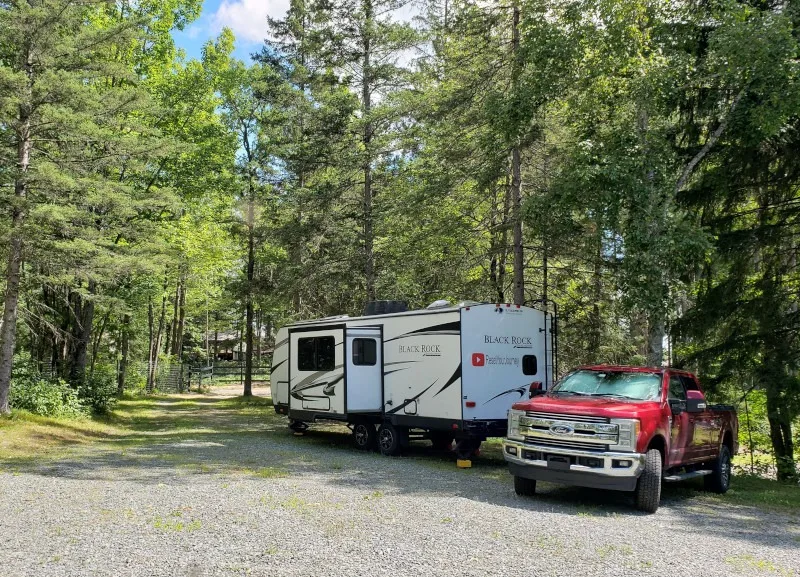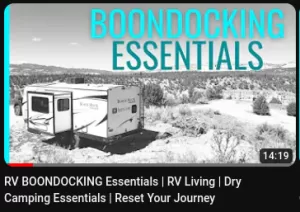Last Updated on 06/11/2024 by Glynn Willard
The Ultimate Guide to Full-Time RV Living
We never imagined we’d be labeled full-time RVers, but we’re so glad we made the decision to embark on the RV lifestyle!
When I look back at my Google Photo drive before full-time RV living, the pictures are nice, but kind of boring.
But then when the photos transition to camper life, they become amazing!
The experiences and memories made can never be topped by buying a thing!
There are many different ways to approach full-time RVing for each individual.
Regardless of which approach you take, get used to living in a small space whether it’s a camper van, travel trailer, fifth wheel, truck camper or motorhome.
Considering RV Living Fulltime?
There’s a lot of ground to cover in preparation for full-time RV life.
Living in a camper may sound romantic, but it still requires a whole new skill set for most people.
Mentally picture your “day in the life” of living in a camper. You’ll likely think of quite a few things in which you’re not proficient.
A few things that come to mind that I didn’t know before starting are:
- Backing up your rig.
- How the electrical systems works.
- How the refrigerator works on propane vs electricity.
- What to use to clean the exterior of the RV.
- Where to find water and dump stations.
- How much your truck can tow if it’s a travel trailer.
- What’s the best camper for boondocking.
- What to do if you have uneven tire wear on your rig.
- How much money to budget each month.
And the list goes on…
That’s just a simple list of things that you’ll have to learn. And this list of skill sets is almost endless.
Regardless, if you’re considering living in a camper, here are 14 “not so obvious” tips and tricks for beginners.
No doubt, you have a lot of big questions.
Tips For RV Full-Time
- Get your bank accounts squared away
- Make sure your taxes can be easily filed.
- Make sure you transfer your bills to an online payment platform.
- Learn the ins and outs of tire care.
- Are any of your credit cards going to expire while you’re traveling?
- Have you packed your rig with everything before departing to learn what you can and can’t take?
- Sanitize your fresh water tank before use.
- Take care of doc appointments
- Do RV maintenance on your RV and appliances, so you know what tools to bring.
- Finding places to stay
- What to do if bad weather?
- RV repairs
- Nomadic income on the road
- Claim your business name and start building your brand: legally establish your right to do business
- Get the green light to start your business today: obtain any licenses or permits you need
- Secure your business’s future with the right insurance: determine if you need business insurance
- Don’t risk penalties – register for sales tax now: determine if you need to collect sales tax
- Protect your personal finances: open an online business bank account today
- Stay on top of your finances – set up your accounting system now
- Maximize your business’s revenue – learn how to forecast your income
- Create a solid financial plan for your business’s success: draft a plan for income and expenses
- Make it easy for customers to pay you: choose the best payment options
- Set aside money to pay taxes: avoid tax-time surprises
- Acquiring supplies on the road
If you have your accounts at a local bank that is not as “online” friendly as many of the bigger banks, you may have to change banks.
We kept a small amount in our local banks.
But we moved the rest of our funds to an online bank that also houses our portfolio.
It’s also wise to only keep several months of your budget in the bank account you’re using for travel. Keep everything else in a separate account.
It’s important to avoid using debit cards at all. There’s too much risk of them being compromised on the road.
A credit card and a small amount of cash is the key.
If you run a business from the road and use a merchant account, having the right bank is critical.
If your business has its own employee identification number, it will have to have its own separate account. Not all banks treat these accounts equally.
Running a business from the road is not that difficult, but there are some legal issues that must be addressed before embarking on your journey.
We’ll list some of those legal issues later in the article.
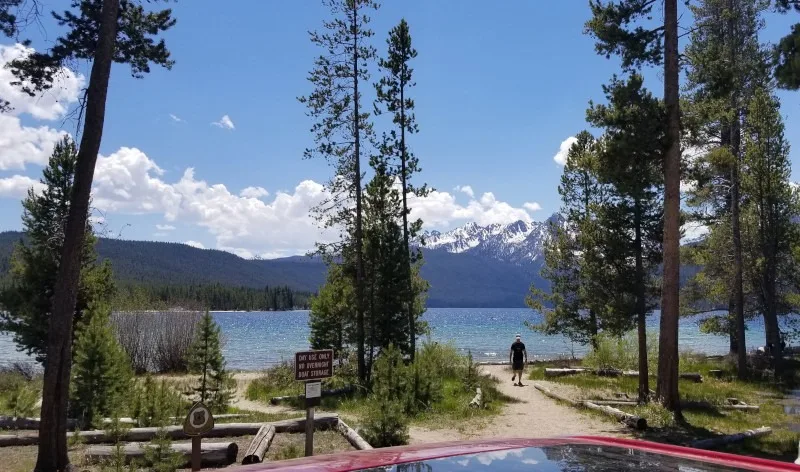
Many of you may file your taxes online yearly. If so, consider yourself lucky as it’s a great way to file.
Running a business that’s an LLC or S Corp from the road means more complicated taxes.
We have to plan well in advance, and have them printed and ready long before they’re due in case there’s an issue with the E-file system.
So if you plan on starting a business on the road, make sure you know all of the tax implications.
Also, make sure you pay your quarterly taxes early in case you’re in a “blacked out” zone with no internet.
It sounds obvious, but I’ll bet it’s easy to forget this aspect. By now, most of your bills should be online anyway.
Or better yet, set auto pay from a credit card. Then pay off the credit card each month.
This gives you a buffer and some flexibility.
But It does pain me to write such a suggestion. The fees I paid on credit cards in my business before I sold were high.
As a courtesy to small businesses, I try to use cash as often as possible.
But the larger companies have more negotiating power to minimize their fees, so I’m okay with paying them with a credit card.
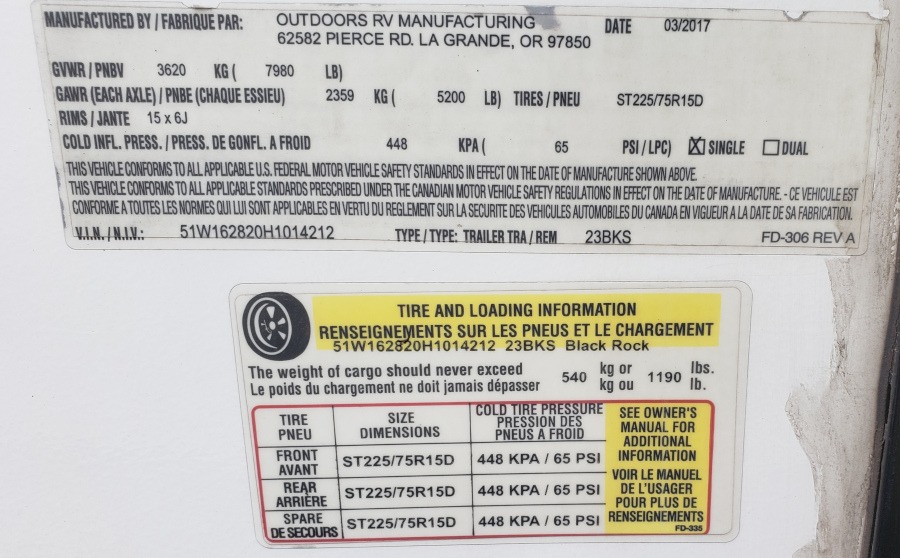
I realize this is an over-covered issue. And I know it’s “more obvious,” but I feel obligated.
So if nothing else, please take away these very important points.
a) Know the weight of your loaded RV.
b) Then find the manufacturer’s downloadable tire guide for the particular model you have.
c) Calculate the weight per axle and wheel.
This will tell you the appropriate tire pressure necessary for the load you’re carrying.
The sticker on the side of the rig is just a general guide. So do the research.
If you’ve done your job, the outcome should technically be nothing bad happens.
Appropriate tire pressure is crucial!!
Secondly, keep an eye on the alignment of all your axles and suspension system. Uneven wear on your tires is an obvious giveaway.
Address it as soon as possible. When you’re trying to prevent a blowout, those are the easiest two things you have control over.
Make it a point to check the expiration dates of all your credit cards before embarking on your journey.
All you have to do is call the credit card company, explain your situation and request a new card with a later expiration date.
It’s that easy. They may state it’s not possible. Push them and they’ll make it happen. You’re the customer.
While I’m on the topic. Before you leave, take a picture of your cards front and back and save in a secure folder.
That way, if you lose it somewhere in your rig and you need to pay for something online. You’ll at least have the card information.
That’s an “old school” method, but it works.
One additional tip is to freeze your credit. It’s easy and can prevent irreparable financial issues on the road.
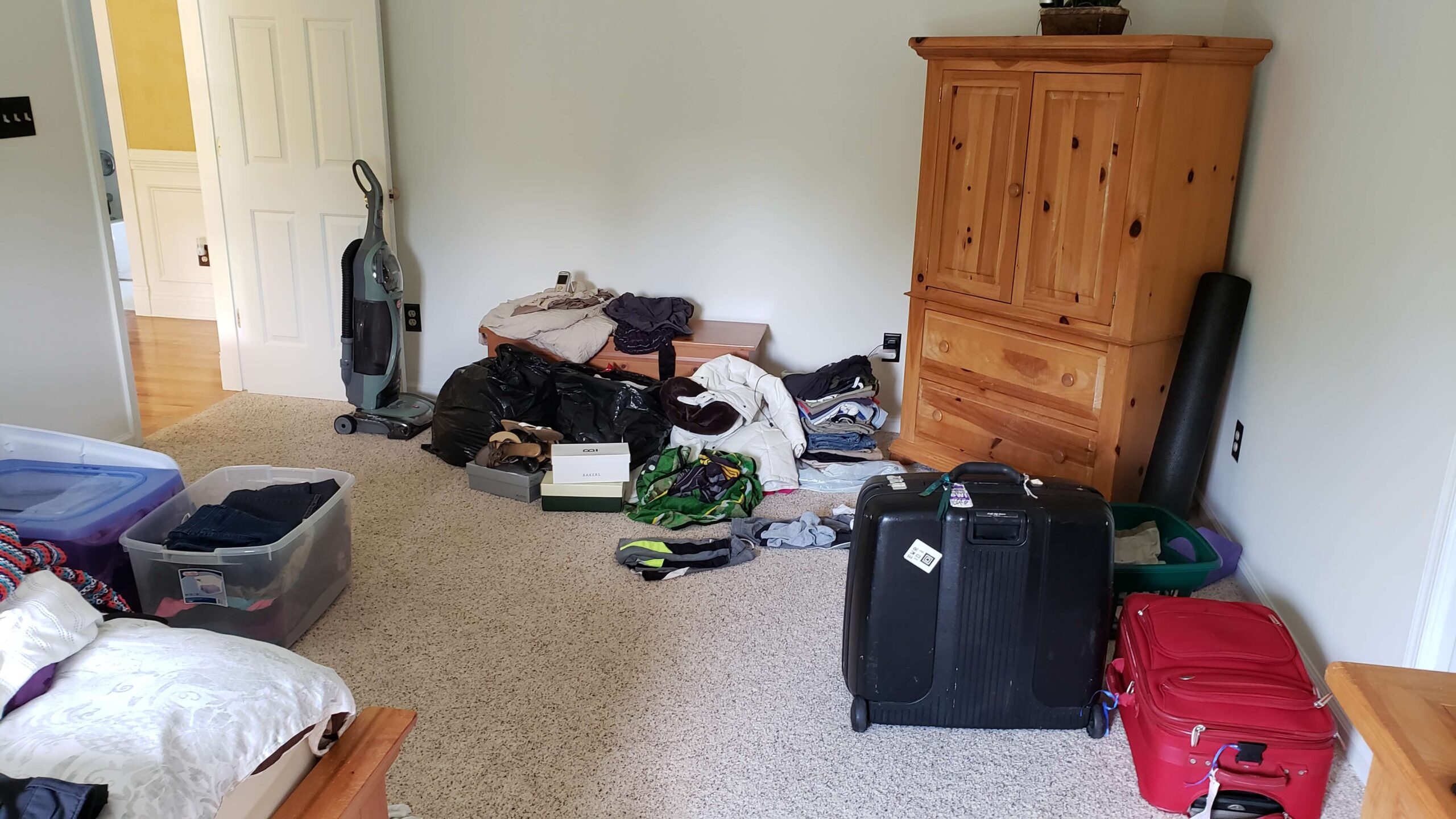
Try your best to weigh your rig if it’s a motorhome and both the rig and tow vehicle if it’s a trailer.
Your weight limits are probably less than you think.
It is easier said than done to weigh your rig before and after it’s loaded. But if it’s doable, it will be worth the effort.
You can of course estimate the amount of weight you’ve added and hope for the best.
Chances are that at some point along the way, you’ll have an opportunity to weigh your rig. Use it!
Too much weight on your tires without proper inflation leads to the obvious blowout.
Also, more importantly, if you’re in an accident and it’s determined you were carrying more weight than your GVWR, your insurance company may turn their back on you.
How this is determined, I’m not sure. But I’m not willing to put myself or others at risk.
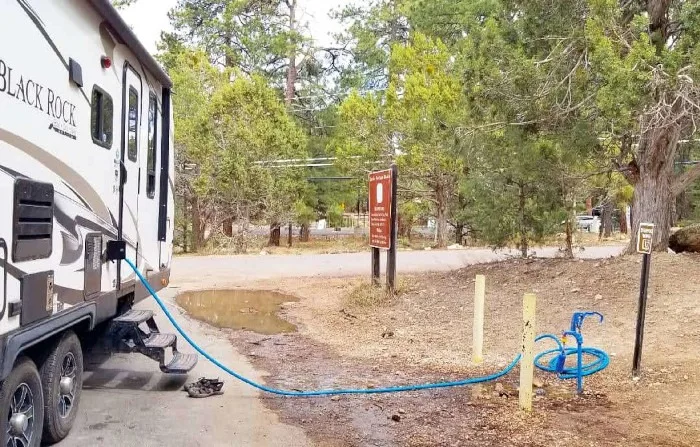
Regardless if your rig is new, used and new to you or you’ve had it awhile, sanitize it before you leave.
It’s a good habit to get into anyway. And it’s easy.
The information about the amount of bleach to use on the internet and social media is pervasive.
And it’s simple.
a) 1 quarter cup of bleach for every 15 gallons of water. So, if you have a 60 gallon tank, add 1 cup of bleach.
b) The tank should be filled with water completely.
c) Let it sit for at least 5 hours or overnight.
d) Empty it and refill with fresh water.
e) Turn your water pump on and run all faucets.
f) If you still smell bleach, drain the tank, refill and repeat.
The above is my process for sanitizing my tank. You can dive into more detail in my article: How To Sanitize RV Water Tank
Regardless, make it part of your preventative maintenance. And do it before you leave.
It will give you a buffer of time when you get started.
You’ll have enough to think about as you travel.
This may seem like a no brainer, but I bet it’s happened. So, If you plan to go out for more than six to eight months, consider your preventative medical care.
That means aligning your appointments for each family member months before you depart.
Since you’re at the mercy of the medical staff, start early.
Don’t forget to talk with the doctor about your plans and ask for a specific plan if you need medical attention.
Again, having an action plan in place is essential to eliminate frustration in an emergency.
Generally, your health insurance will cover an ER visit in any state.
If you get all your annual stuff taken care of in one lump time frame in your state of full-time residence, you shouldn’t have to worry about which state your insurance covers.
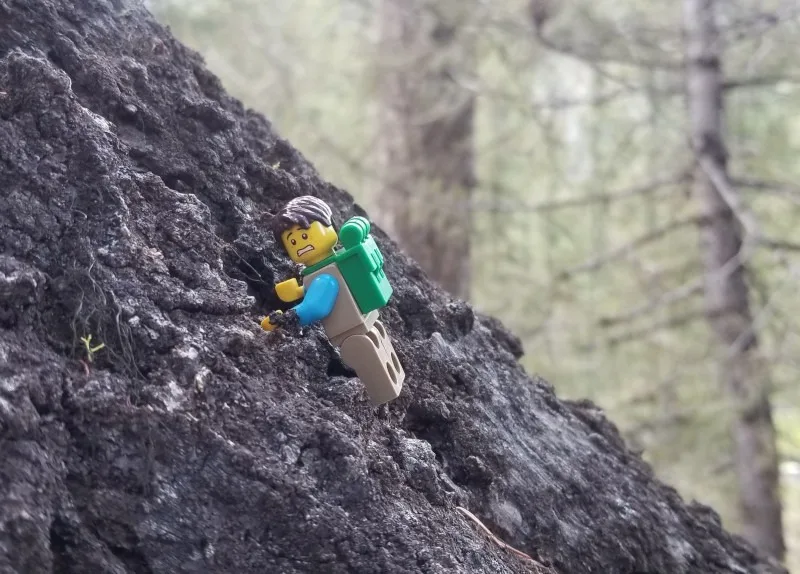
I can’t stress this enough. If you get out of your comfort zone and take the time to do the preventative maintenance on your rigs systems, you’ll know which tools to take.
And you’ll be familiar enough with the systems to do minor repairs.
Tools are heavy. So you can’t just haphazardly throw everything you think you’ll need in the rig.
It’s better to take only what you’ll really need.
And you can’t make that decision until you work on your systems.
Even if you just take something apart to investigate its “workings”. I find myself doing that a lot just for fun.
Nonetheless, when you’re boondocking far from civilization or campground and prefer not to pay too much for repairs, having some experience goes a long way.
While I’m on this subject, take the time to learn your electrical systems and plumbing.
This includes solar panels, batteries, inverter and circuits for the electrical system and your PEX lines, water pump and connections for plumbing.
We like to boondock most of the time, but it may not be for you. If it is, you can learn a lot more from our boondocking section.
Boondocking on public land outside national parks is our favorite! If you plan to live the van life, consider boondocking all the time.
You can learn all about finding your next new place to boondock in our article: How To Find Free Boondocking Sites
Our second favorite places to stay on our “road trip” around North America are state parks.
It’s a good idea to book a state park if you need to dump your gray and black tanks or have a package delivered to their address.
We use the app Park Advisor and Recreation.gov to book state parks.
If you need to stay in RV parks for a longer duration, it’s best to call ahead and book your stay.
If bad weather is headed toward your location, the best way to handle it is to move.
If that’s not an option and severe weather conditions are imminent, get a hotel room.
When a severe storm was heading our direction in Mississippi and we were in a state park, moving was not an option.
So, we figured the perfect place would be a structurally sound hotel. We made it a “movie and long shower night.”
It was a good call since the storm dropped a tornado a little over a mile north of our campsite.
Also, check your winds on a moving day if you have a large RV. Gusts over 40mph can wreak havoc on RV’s. Change your moving day if you can.
It’s not if, it’s when your tiny home on wheels needs repair.
If you did your preventive maintenance before you left, you should already know what tools and parts you need to carry.
The only spare parts we carry are a full set of bearings and grease.
Wheel maintenance for trailers is your most important maintenance, period!
We do a lot of our preventative maintenance and repairs on BLM land. Just don’t make a mess.
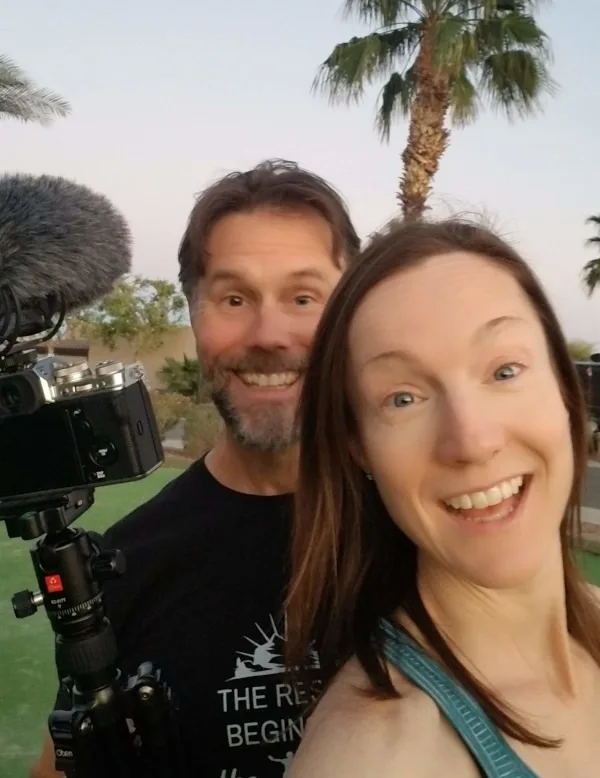
We tried work camping once.
Remote jobs are harder to come by as a full-time job. That doesn’t mean they don’t exist.
If you already have a remote job, you have a head start to hit the open road.
You can also pick up gigs along the way if you don’t need a high income.
The beauty of being debt-free with no monthly payments on your RV opens the door to using gig income as an option.
Starting a business on the road sounds great, but it’s a lot harder than most think and takes a long time.
I would suggest abstaining from full time until your business has some traction unless you have a large cash reserve.
We sold our traditional home and business of 20 years, giving us a large buffer to live off of.
Penny Rose of FeFiFoFum Services has the following suggestions for starting a business:
To get more details from each item, you can sign up for Penny’s email list here.
Honestly, this is one of the easiest aspects. Grocery shopping on a moving day is the best.
We like to pull into a Walmart partway through our moving day, use their bathrooms, have lunch in the rig and purchase a week’s worth of groceries.
If you’re going to a different grocery store, first check the satellite view to make sure you’ll fit if your recreational vehicle is large.
We also like to pull into Tractor Supply to refill our propane when it’s low.
Of course, if you need to do any repairs, Lowe’s and Home Depot have most necessities. And RV dealers for parts are in almost every town.
Not Sure What You Need For Your RV?
A Day In the Life Of Camper Life
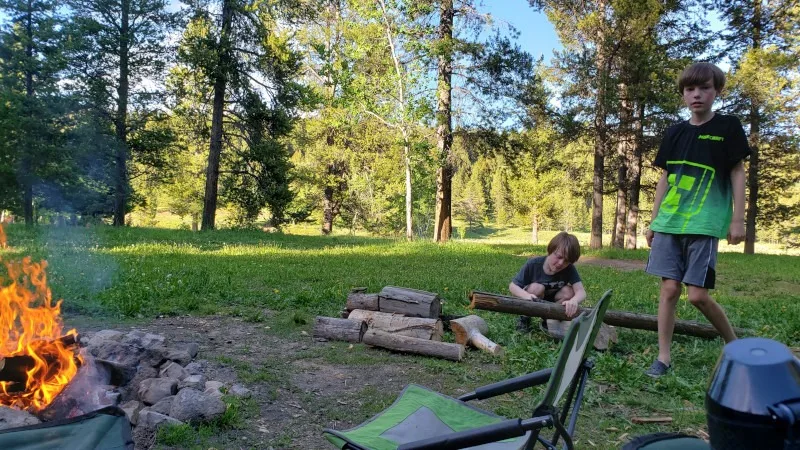
Every day is a little bit different. We’re almost always in remote places boondocking.
I wake up around 5AM and take advantage of my personal space in the dinette to write blogs and work on our channel.
Then I take a short hike to watch the sunrise and do a workout while everyone is still sleeping. This is my favorite time of day!
Once everyone is up, I make breakfast for the boys and they do their schoolwork.
We then either take a local hike, hit a national park, visit a museum or attraction or run errands. We take lunch with us.
Next, we buckle down in our own personal space and get work done while the boys play Minecraft online.
If there are new people boondocked near us, we make an effort to meet them if they appear friendly. We’ve made a lot of new friends this way!
Then, we have the boys play outside while one of us prepares dinner.
Finally, we either play board games or chess. If we have a great internet connection, we’ll watch a movie on the laptop.
So many of the little things associated with fulltime camper life add up to great experiences and memories!
Conclusion
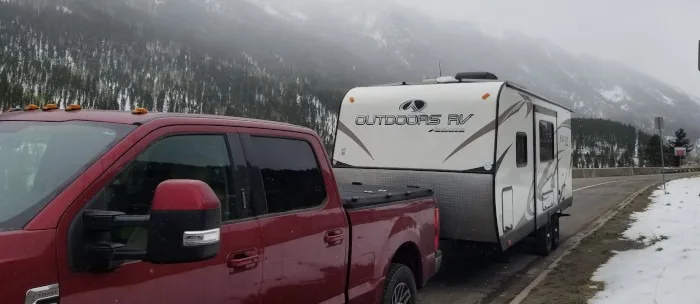
Long hauls in inclement weather are exhausting.
There are a lot of blogs discussing some very important considerations when living full time in an RV. And you owe it to yourself to pay attention to them all and make note.
Regardless of quality, anyone who’s spent some time on the road will have some valuable input.
It takes a lot of us to accumulate and translate great information.
We wanted to go over some of the “not so obvious” tips that we found necessary while preparing for RV living.
Have you found any unusual preparations that are not so obvious for living full time in a camper?
Please let us know in the comments and maybe we can pass it on.
Remember, the right gear is important, but just getting out there is the most important!
Meet the author.
We appreciate any help we can get to bring you great content. Donate or buy us a coffee on our Ko-Fi site.

